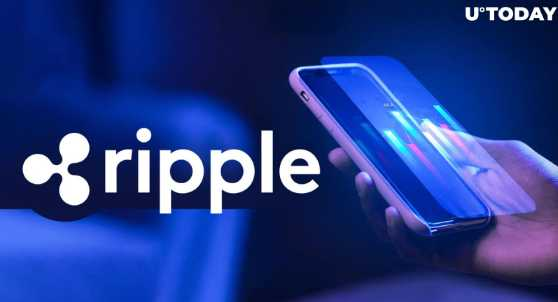In a recent insights report, Ripple highlights what might be the biggest breakthrough for decentralized finance (DeFi) in 2024: compliance.
Many predict a breakout year ahead for decentralized finance, fueled in part by the continued tokenization of real-world assets and mainstream adoption of blockchain and crypto. But achieving this will depend on clear regulatory guidelines.
To explore the ways that this regulation might take shape, Ripple and TRM Labs co-hosted a public-private roundtable featuring an impressive mix of regulators and industry representatives at the Elevandi Insights Forum as part of the Singapore Fintech Festival.
Participants noted that decentralized finance would benefit from a singular, agreed-upon definition, increased data sharing between regulatory regimes, and embedded compliance protocols via smart contracts. Read on for a deeper dive on the roundtable discussion.
Regulatory Clarity Fuels Innovation
Decentralized finance is named as such because it has no central authority. Removing centralized institutions from financial transactions enables individuals or entities to transact directly with one another, and can create greater equity compared to traditional finance.
Though still in its infancy, decentralized finance represents a rapidly growing industry projected to reach USD $601 Billion in 2032, according to an analysis by Emergen Research, with the potential to significantly increase financial inclusion and improve market efficiencies using blockchain solutions for finance.
The challenge? According to roundtable participants, decentralized finance and the root of the technology are still somewhat misunderstood. And with no singular definition recognized across the industry, misalignment in approaches to adoption and regulation have been unavoidable.
Fortunately, despite the lack of a commonly held definition, many regulators recognize that innovation is tightly tied to regulatory clarity and are responding in kind. Major governing bodies, including the International Organization of Securities Commissions (IOSCO) and the Monetary Authority of Singapore (MAS), have already begun early conversations regarding decentralized finance.
Even jurisdictions without regulatory frameworks for crypto like the United States are making progress, as evidenced by the Commodity Futures Trading Commission’s (CFTC) Decentralized Finance report. Similar to other progressive efforts, its overarching goal is to encourage responsible innovation, ensure proper risk management and establish consumer protections.
This promising start is one reason why Ripple President Monica Long expects pioneering compliance for decentralized finance to be the biggest breakthrough of 2024, furthering blockchain applications in finance.
Cross-Border Data Collaboration
Participants of the roundtable also agreed that the borderless nature of decentralized finance introduces the potential for regulatory arbitrage. In other words, the lack of standardization across jurisdictions means participants could take advantage of more favorable laws in one region to circumvent less favorable regulations elsewhere.
This challenge highlights the importance of global collaboration. Increased data sharing between jurisdictions becomes pivotal, fostering transparency and standardization while empowering regulators to understand the risks of the technology and develop progressive regulation.
This strategy is also emphasized in the CFTC’s report, underscoring the significance of data as a key component to mitigate risks, protect consumers and ensure financial stability.
Compliance By Design
Finally, there was a consensus among roundtable participants for the need to practice “compliance by design.” This innovative approach envisions encoding compliance requirements directly into decentralized finance protocols through smart contracts.
Using these embedded tools in finance could produce important reductions in regulatory burden, lower costs, and facilitate better financial products for end users.
A Compliance-First Crypto Industry
Overall, the Ripple and TRM Labs’ roundtable reinforced the need for continued collaboration and what Long called a “compliance-first mindset” in order to lay the foundation for a comprehensive global regulatory framework for decentralized finance.
With that in place, it is easy to envision a fast-approaching tipping point for decentralized finance and greater real-world utility for crypto.












 All while Pfizer—a company with a $2.3 billion criminal fine for fraudulent marketing, bribery, and kickbacks—was given blanket immunity from liability and billions in taxpayer dollars to produce a vaccine in record time with no long-term safety data.
All while Pfizer—a company with a $2.3 billion criminal fine for fraudulent marketing, bribery, and kickbacks—was given blanket immunity from liability and billions in taxpayer dollars to produce a vaccine in record time with no long-term safety data.
























